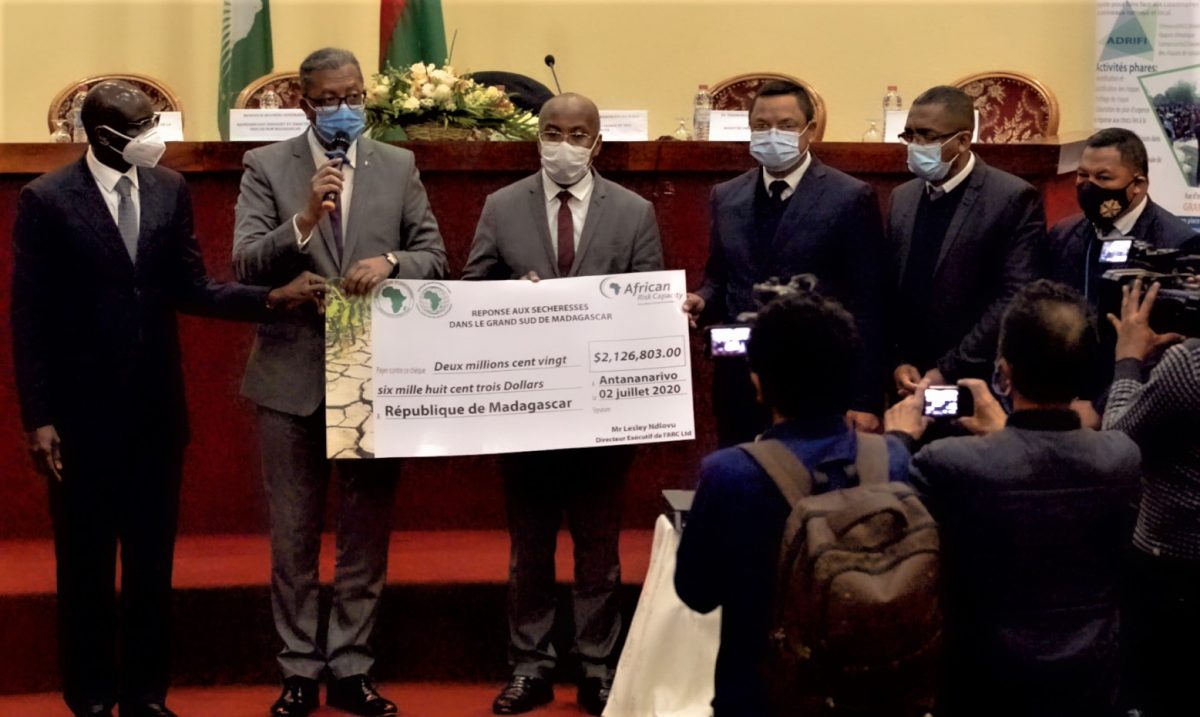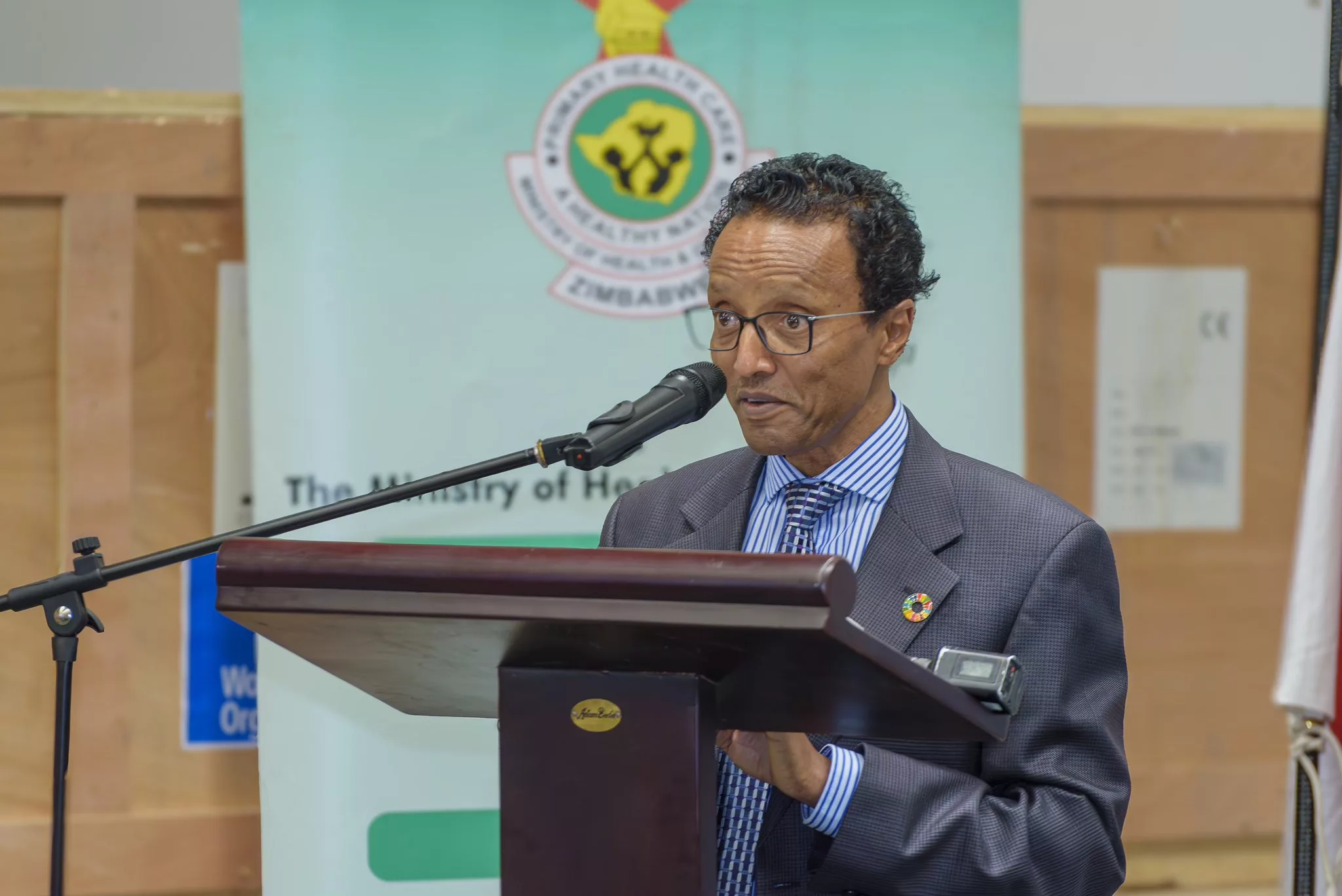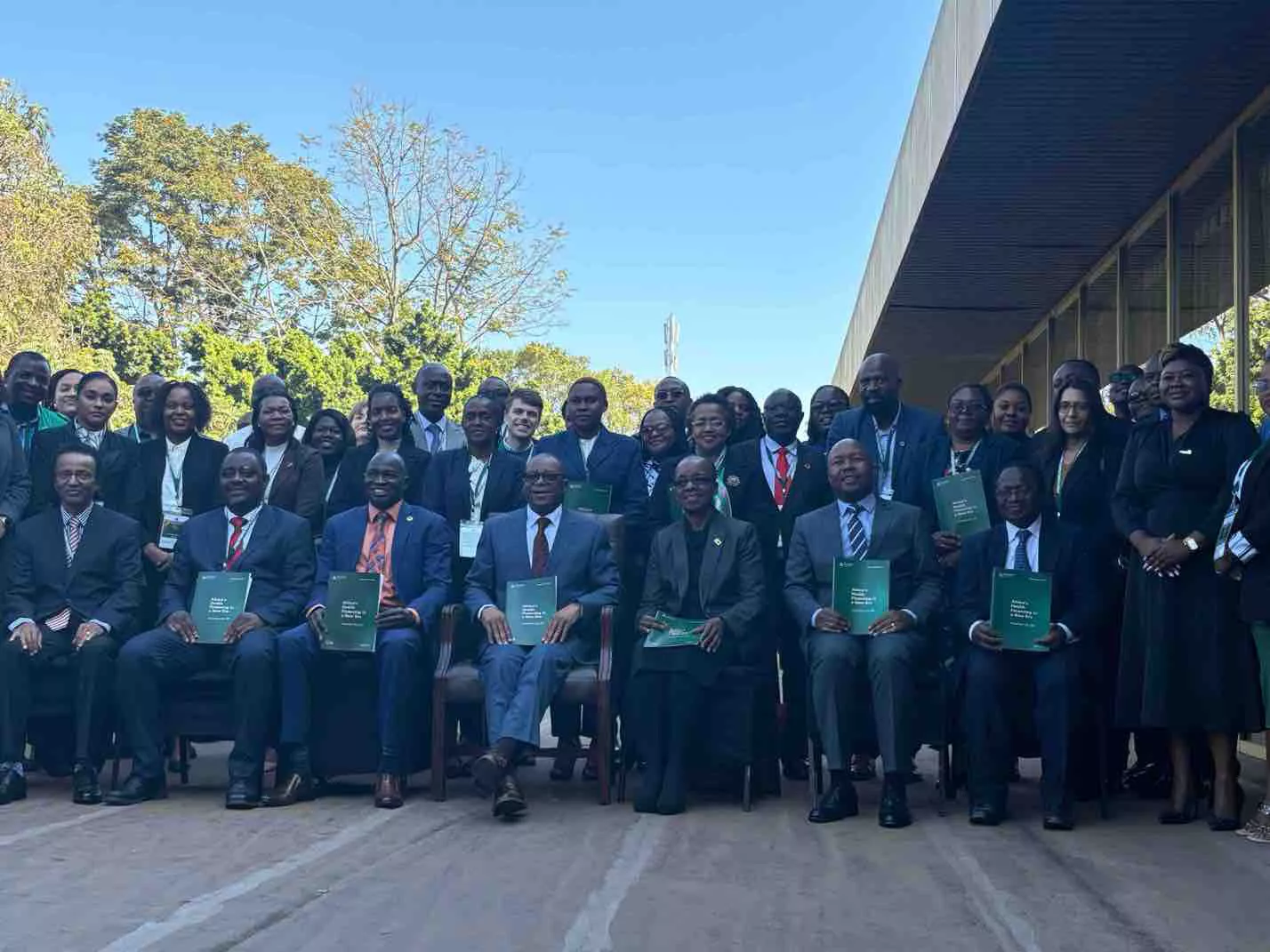The Government of Madagascar today received a symbolic cheque in the amount of USD 2,13 million from the African Risk Capacity Insurance Company Limited (ARC Ltd) to cover anticipated losses to livelihoods of its vulnerable population from the crop failure in the just concluded farming season.
The ARC payout is the result of drought insurance taken by the country with the support of the African Development Bank (the Bank) through its flagship programme, Africa Disaster Risk Financing (ADRiFi) Programme, which financed 100% of the 2019/2020 insurance premium for sovereign drought risk transfer for the Republic of Madagascar.
The payout will be implemented to assist the lives and livelihoods of 600,000 vulnerable populations affected by the drought, thereby preventing them from resorting to negative coping mechanisms including eating their seeds, selling farm implements, internal displacement, forced migration, etc.
The Minister of Economy and Finance, Richard RANDRIAMANDRATO, representing the Malagasy Government during the official handover ceremony stated in his speech that: “The drought insurance of African Risk Capacity is one of the sustainable solutions to strengthen the efforts of the Government and partners in the Southern region of Madagascar. It demonstrates the mutual assistance between friendly African countries to respond efficiently to natural disasters, particularly drought.”
Such a mechanism is beneficial for Madagascar as it will enable us to improve the conditions of farmers and the livelihoods of vulnerable populations in the “Great South” that are victims of recurrent drought, as well as to preserve their production capital.
Early interventions to be implemented with this fund will focus on unconditional cash transfer and Cash for Work (CFW) for 15,000 vulnerable households, nutritional support for 2,000 children under 5 years of age, and water supply for 84,000 households. Thus, this insurance mechanism supports the implementation of the National Disaster Risk Management Policy and Strategy, particularly the promotion of financial resilience to climatic hazards.
Madagascar faces disaster risks from an increasingly variable and changing climate, which adds to the challenges of widespread food insecurity. Due to its geographical position, the country is vulnerable to various climate shocks. Cyclones, floods, and droughts bring devastating consequences by putting considerable pressure on the country’s public finances as well as real GDP growth.
According to the African Development Bank, natural disasters in Madagascar in 2017 caused an estimated USD 420 million in related damages. It is in this context that, in October 2019, Madagascar joined the ARC drought insurance risk Pool VI for the 2019/2020 crop season as one of the pilot countries of the ADRIFI programme.
In his remarks, UN-ASG Mohamed Beavogui, the Director-General of African Risk Capacity said, “The payout made by ARC to support the drought-affected population in the Great South” region was made possible thanks to the leadership and commitment of the Government of Madagascar to protect its people. We also thank the AfDB for their laudable support through the ADRiFi programme. This is a vivid testimony that collaboration between African governments and development partners, both within and outside the region, using market approaches can go a long way in saving developmental gains on the continent.
“Our purpose in working with the Member States to provide disaster risk insurance is targeted at promoting resilience and providing financial protection to the vulnerable population when perils occur”, remarked Lesley Ndlovu, the CEO of ARC Insurance Limited.
“We are glad that this payout will assist the Government in quickly supporting its affected population to rebuild and recover from the effects of the drought and prevent them from resorting to negative coping mechanisms”, he concluded.
In establishing a framework for collaboration, ARC and AfDB signed a Memorandum of Understanding (MoU) in March 2017 to support African states to manage disaster risks and to be better prepared to effectively respond to climate-related perils that seriously affect the continent. It is within this framework that the Bank provided financial support to the Government of Madagascar for the payment of its insurance premium over a period of 5 years (2019-2023) through the ADRiFi programme.
“The insurance policy payout is timely, with Madagascar also facing the challenges of dealing with the current COVID-19 pandemic. It demonstrates that risk transfer programmes can help countries manage the risks of climate-related disaster and release pressure on public finances when multiple crises occur,” said Dr. Jennifer Blanke, Vice President for Agriculture, Human and Social Development at African Development Bank.
With the support of the United Kingdom, Germany, Sweden, Switzerland, Canada, France, the Rockefeller Foundation and the United States, ARC helps the member states of the Union to reduce the risk of loss and damage caused by extreme weather events affecting African populations by providing, through sovereign disaster risk insurance, targeted responses to natural disasters in a more timely, economical, objective and transparent manner. ARC is now using its expertise to help tackle other major threats facing the continent, including outbreaks and outbreaks.
Since 2014, 45 insurance contracts have been signed by ARC member states, representing USD 83 million in premiums paid for total insurance coverage of USD 602 million to protect 54 million vulnerable people in participating countries.
“Madagascar’s accession to the drought insurance mechanism as part of this ADRiFi program is a very encouraging initiative. The collaboration between the Malagasy Government, ARC, and the AfDB is still as fruitful in terms of developing a financial protection mechanism in the face of disaster risks. The sustainability of this tripartite collaboration will allow us to open doors of extensions to other risk areas of the country or even for other types of climatic hazards such as cyclones, floods, and epidemics,” said General of Air Brigade Mamy Razakanaivo, Executive Secretary of the CPGU (Prevention and Support Unit for Emergency Management) within the Prime Minister’s Office and Supervisor of the ARC program in Madagascar.






